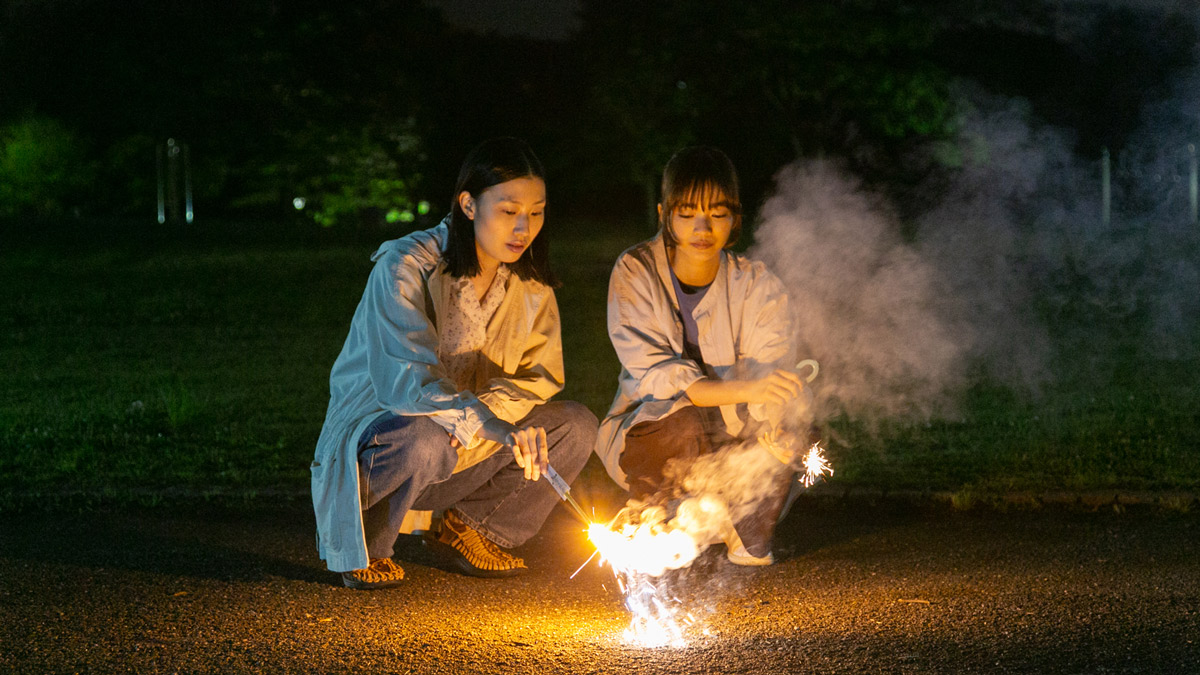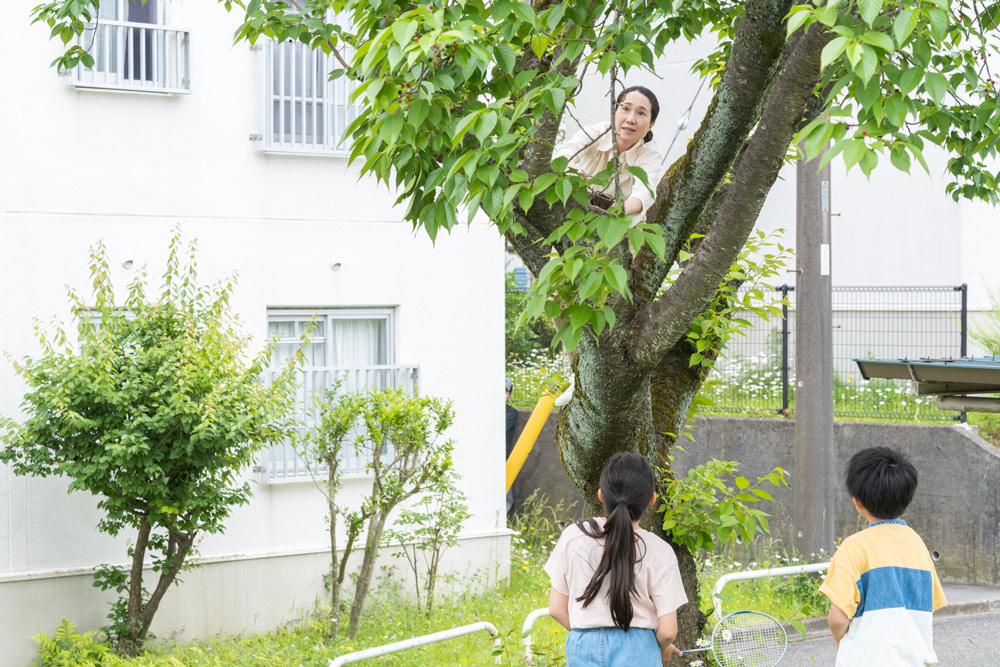
©2022 PFF Partners (Pia, Horipro, Nikkatsu) / PFF General Incorporated Association
“Remembering all the nights” The times that come together, the women who keep the fire going
2024.03.07
Look for Similarities
As with his first feature film, Our House (2017), Kiyohara Yui depicts parallel worlds. Whereas the previous film was set in a house, this film is set in a town called Tama New Town. The three main women do not even know each other. Each of them lives in this town with their own circumstances. The scenery is like a photo of the Tokyo suburbs taken by Homma Takashi. It is a town that was once dreamed of through urban development in the 1960s. In a town where scenery is described as similar everywhere, these women of different generations pass each other by. Kiyohara Yui explores the similarities between this place and the three women.
Chizu (Hyodo Kumi) was fired from her job dressing kimonos, and now goes to the Hello Work employment center. A male employee there introduces her to a workplace with many housewives. The counselor is soft-spoken and conscientious, suggesting job opportunities, and he has no ill intentions. However, for Chizu, who is not a housewife, the word "housewife" that the counselor unconsciously uses strikes a chord with her. It is a classification of herself that some people might simply let go. Chizu's reaction shows a clear resistance to being arbitrarily classified. This scene aptly expresses Chizu's character, and how she has lived her life up until now.
"All the Nights I Remember" is also a film that picks up an accumulation of reactions. Chizu, who gives a modest first impression but is not afraid to approach the subject, best embodies the film's unique humor. A badminton shuttlecock gets stuck on a tree branch. Chizu approaches some children in distress to help them, but they are a little suspicious of her. But there is something endearingly funny about this scene.

"Remembering Every Night" ©2022 PFF Partners (Pia, Horipro, Nikkatsu) / PFF General Incorporated Association
The similarities between the women in this film become apparent in a scene where Chizu buys the famous Musashino Diary at a Japanese sweets shop and talks with a colleague from her previous workplace. Chizu suddenly starts talking about semiconductors. The film's genius lies in the brief moment when Chizu thinks about how to react to Chizu, cushioning her response with "Oh, really?" Similar moments also appear in a conversation between gas meter reader Sanae (Oba Minami) and an apartment resident, and in a conversation between university student Natsu (Mikami Ai), who confesses that she has recently taken up the hobby of dancing alone, and her friends.
The characters in this film do not take others' words for granted. They accept the lack of coherence in conversation. Like Sanae, who never rejects anything the missing elderly man with dementia says and stays with him wherever he goes (the wandering elderly man is played by Tadashi Okuno, star of Abbas Kiarostami's "Like Someone in Love " (2012). He gives a brilliant performance that exudes humorous sadness!). A strange similarity emerges between the three women who have never met.

